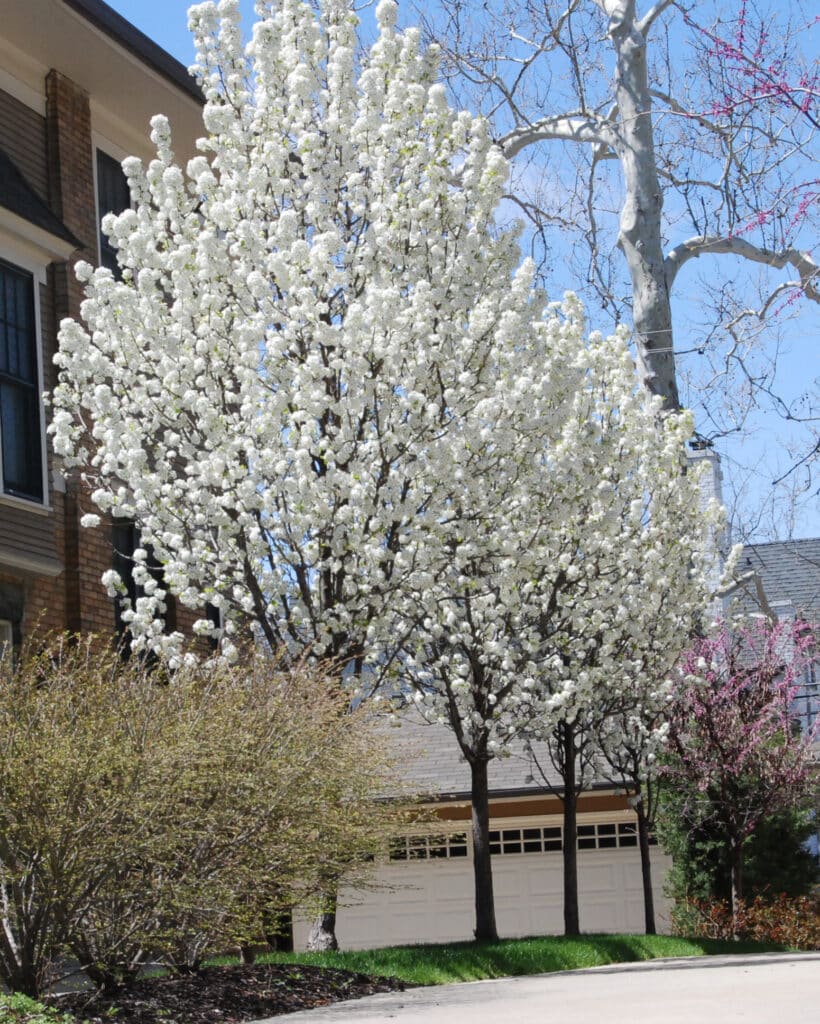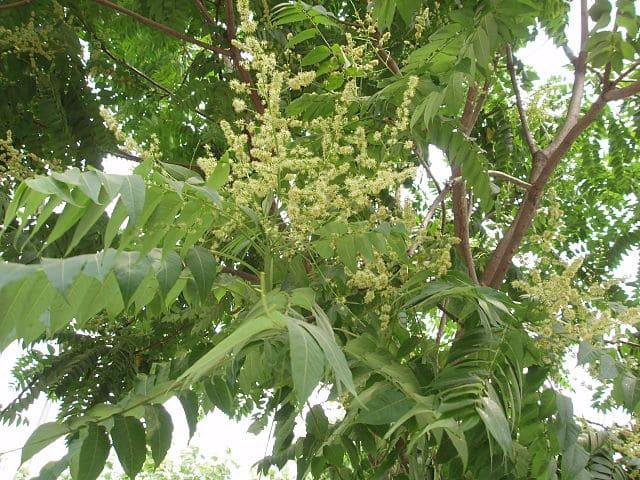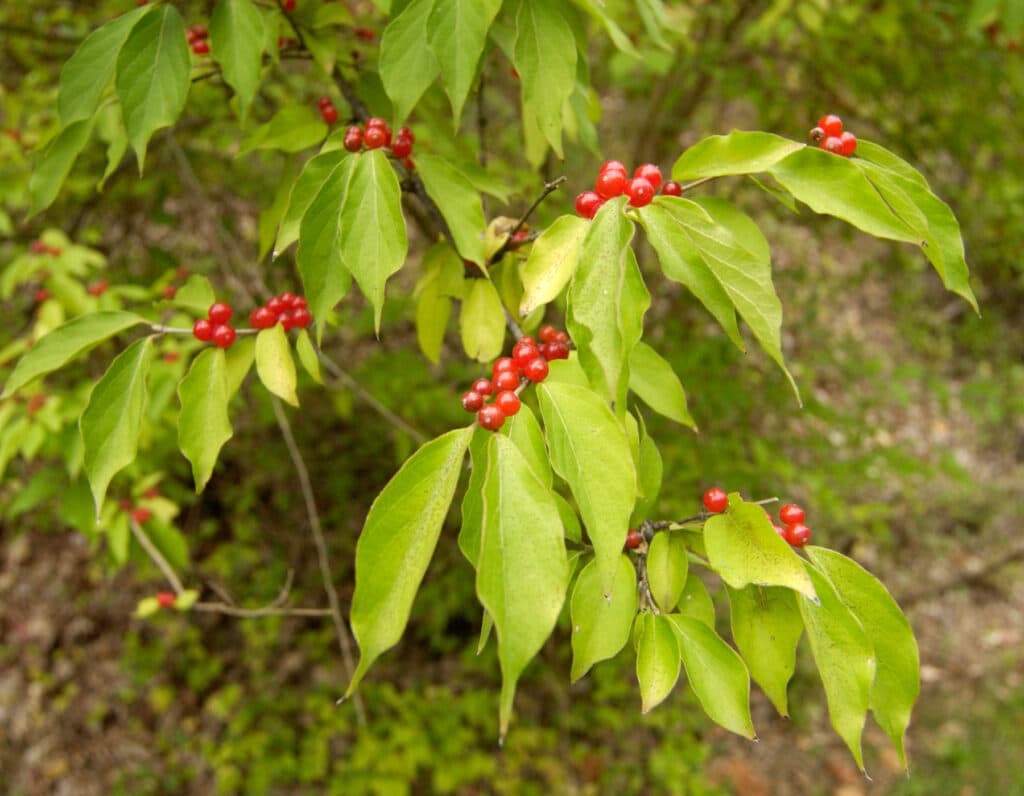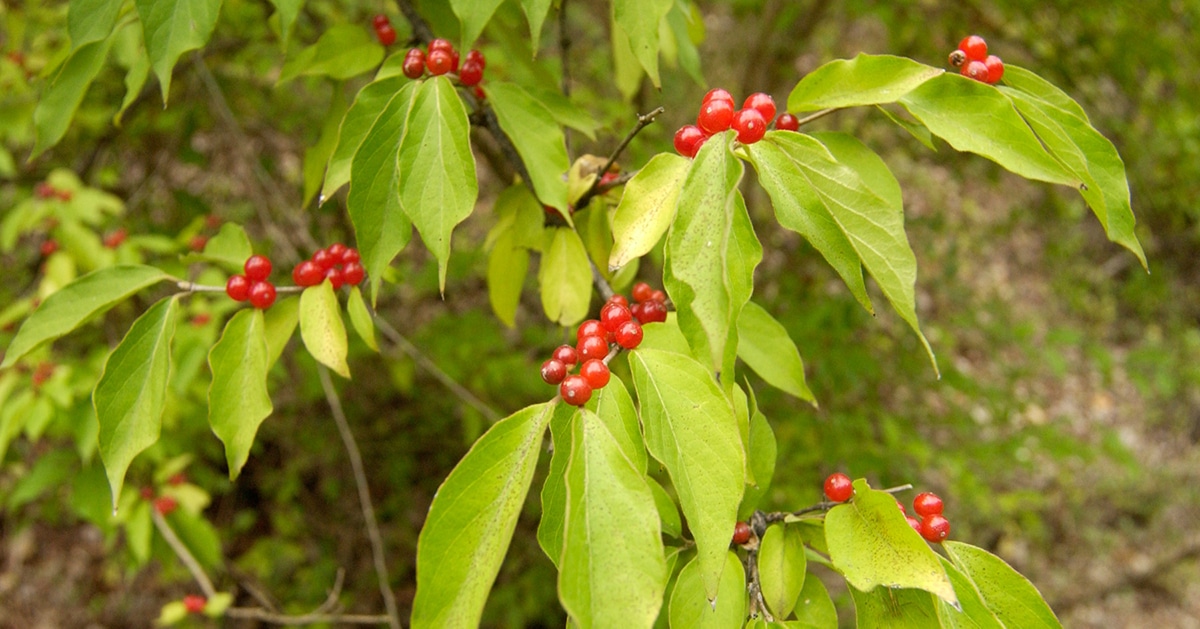Did you read The Life-Changing Magic of Tidying Up? If so, you’ll recall that the main point is that we have too much stuff in our lives and by eliminating a lot of it, and keeping the rest in order, our lives will improve.
We have the power to make some life-changing magic in the natural world by getting serious about eliminating invasive plants. In doing so, we can improve the chances that we’ll have a world with birds, butterflies and pollinated food.*
Invasive vs. Native Plants
The truth is that if you have a Callery Pear Tree (like Bradford, Aristocrat, Redspire and Chanticleer) or a Bush Honeysuckle, or a Tree of Heaven in your yard, you are helping destroy the natural world. Yes, destroying. These plants and other non-native invasive plants are multiplying rapidly, taking over natural areas and crowding out native plant species. And it’s the native plants that produce the food that supports our insects, pollinators, birds and butterflies. (Click here for a new list of Missouri’s top invasive plants expanding across our state.)
So, What Should You Do?
Cut Them Down!
For tips, review this short presentation on killing an invasive tree. While native gardeners don’t normally recommend chemicals for gardening, our conservation friends use them in the fight against invasive plants. But they are careful in the application, and you should be too. The other option is to simply chop down the offending plant, but then be ready for a fight. For the next two years you’ll be cutting or mowing down new shoots.
Planting Natives
An important strategy to help local wildlife is planting natives. It’s just as important to take responsibility for any invasive thugs on your property. Read about invasive plants and then burn some calories by chopping away at these invaders. You’ll feel better and you’ll create some real life-changing magic for our birds, butterflies, bees and food supply.
Examples of Local Invasive Plants



Want to do even more? Volunteer with Kansas City Wildlands (a program of Bridging the Gap) and help remove invasive plants in our parks and natural areas.
*Pollinators are responsible for one out of every three bites of food we eat. Most crops grown for their fruits (including cucumber, tomato and eggplant), nuts, and seeds require pollination by insects. No insects = no food!




